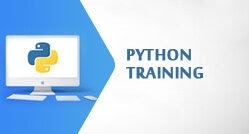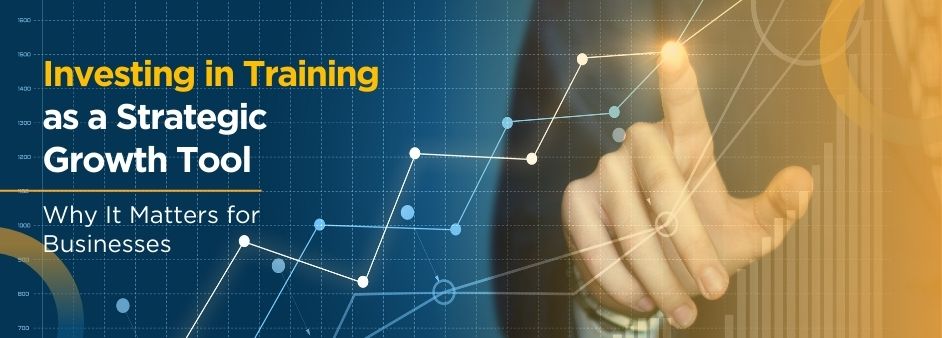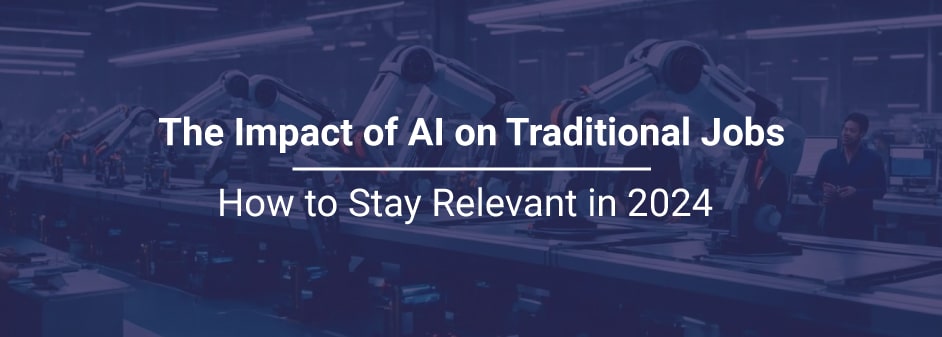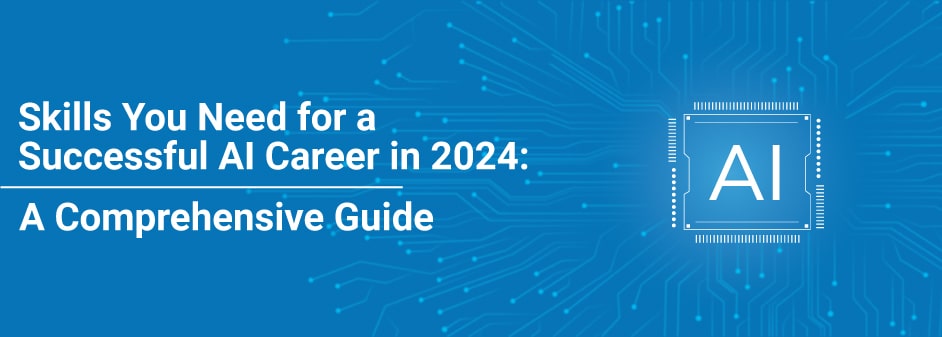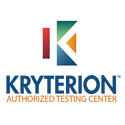How to Transition to an AI Career: Tips for Non-Tech Professionals
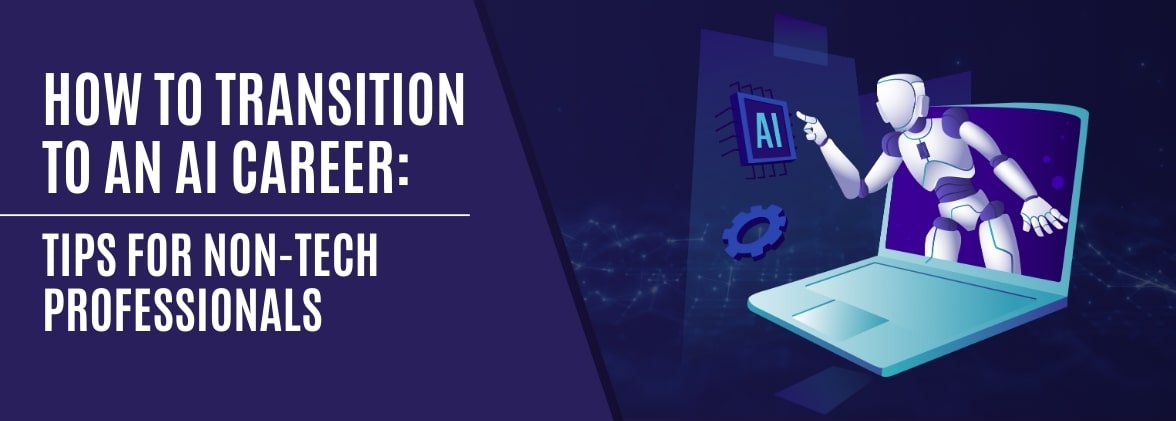
Transitioning to an AI career can seem daunting, especially for professionals from non-technical backgrounds. However, with the right approach and mindset, it’s entirely achievable. This guide offers practical advice to help you navigate this exciting career shift.
Introduction
Switching to an AI career can open up numerous opportunities, but the transition requires dedication and strategic planning. This guide is tailored for non-tech professionals looking to make this shift smoothly.
Understanding AI and Its Relevance
Artificial Intelligence (AI) is a broad field encompassing machine learning, natural language processing, robotics, and more. Understanding its relevance and applications across various industries is the first step toward a successful transition.
Assessing Your Current Skills and Identifying Gaps
Evaluate your existing skills and determine the gaps you need to fill. This self-assessment will help you focus on areas that require the most attention.
Learning the Basics of AI
Foundational Courses
Start with introductory courses that cover AI fundamentals. Platforms like Coursera, edX, and Udacity offer beginner-friendly courses.
Online Resources
Leverage free online resources such as blogs, tutorials, and YouTube channels dedicated to AI and machine learning.
Books and Publications
Read books like “Artificial Intelligence: A Guide for Thinking Humans” by Melanie Mitchell and “Deep Learning” by Ian Goodfellow to gain a deeper understanding.
Developing Technical Skills
Programming Languages
Learn programming languages essential for AI, such as Python and R. These languages are widely used in AI development due to their simplicity and robust libraries.
Data Analysis
Gain proficiency in data analysis, which is critical for understanding and manipulating datasets. Tools like Excel, SQL, and Pandas are useful.
Machine Learning
Dive into machine learning concepts, algorithms, and tools. Familiarize yourself with libraries like TensorFlow and PyTorch.
Leveraging Your Non-Tech Background
Industry Knowledge
Your industry experience is valuable. Understanding industry-specific problems can help you develop targeted AI solutions.
Unique Perspectives
Non-tech professionals often bring unique perspectives that can lead to innovative solutions and approaches.
Transferable Skills
Skills such as project management, problem-solving, and communication are highly transferable and beneficial in AI roles.
Practical Experience and Projects
Building a Portfolio
Create a portfolio showcasing your AI projects. Include projects that highlight your skills in data analysis, machine learning, and problem-solving.
Internships and Volunteering
Look for internships or volunteer opportunities in AI to gain practical experience and expand your network.
Kaggle Competitions
Participate in Kaggle competitions to practice your skills, learn from others, and gain recognition in the AI community.
Networking and Community Engagement
Joining AI Communities
Join AI communities, both online and offline. Engaging with peers can provide support, feedback, and learning opportunities.
Attending Conferences and Meetups
Attend AI conferences and meetups to stay updated on industry trends, network with professionals, and learn from experts.
Online Forums and Social Media
Participate in online forums like Reddit’s r/MachineLearning and engage with AI content on LinkedIn and Twitter.
Gaining Certifications and Advanced Degrees
Consider obtaining certifications from recognized institutions. Advanced degrees in data science or AI can also enhance your qualifications.
Finding Mentors and Advisors
Seek mentors who can guide you through your transition. Advisors with experience in AI can provide valuable insights and support.
Preparing for AI Job Interviews
Prepare for interviews by practicing common AI-related questions, developing a solid understanding of AI concepts, and showcasing your projects.
Overcoming Common Challenges
Imposter Syndrome
Many career switchers face imposter syndrome. Remember that everyone starts somewhere, and persistence is key.
Keeping Up with Rapid Advancements
AI is a rapidly evolving field. Commit to continuous learning to stay current with new developments and technologies.
Future Trends in AI Careers
Stay informed about future trends in AI, such as explainable AI, AI ethics, and the integration of AI with emerging technologies like blockchain and IoT.
Conclusion
Transitioning to an AI career from a non-tech background is challenging but achievable with the right approach. Focus on building your technical skills, leveraging your unique background, and continuously learning to succeed in this dynamic field.
FAQs
Do I need a technical degree to start a career in AI?
No, but having a technical degree or relevant certifications can be beneficial. Focus on building skills through courses and practical projects.
How long does it take to transition to an AI career?
The timeframe varies based on your background and dedication. It can take anywhere from a few months to a couple of years.
What are the best resources for learning AI?
Online courses, tutorials, books, and community forums are excellent resources. Platforms like Coursera, edX, and Udacity offer comprehensive AI courses.
How can I gain practical experience in AI?
Build a portfolio, participate in Kaggle competitions, seek internships, and volunteer for AI projects to gain hands-on experience.
What are some common challenges in transitioning to an AI career?
Overcoming imposter syndrome, keeping up with rapid advancements, and bridging the skill gap can be challenging but manageable with persistence and continuous learning.
Transitioning to an AI career can seem daunting, especially for professionals from non-technical backgrounds. However, with the right approach and mindset, it’s entirely achievable. This guide offers practical advice to help you navigate this exciting career shift.
Introduction
Switching to an AI career can open up numerous opportunities, but the transition requires dedication and strategic planning. This guide is tailored for non-tech professionals looking to make this shift smoothly.
Understanding AI and Its Relevance
Artificial Intelligence (AI) is a broad field encompassing machine learning, natural language processing, robotics, and more. Understanding its relevance and applications across various industries is the first step toward a successful transition.
Assessing Your Current Skills and Identifying Gaps
Evaluate your existing skills and determine the gaps you need to fill. This self-assessment will help you focus on areas that require the most attention.
Learning the Basics of AI
Foundational Courses
Start with introductory courses that cover AI fundamentals. Platforms like Coursera, edX, and Udacity offer beginner-friendly courses.
Online Resources
Leverage free online resources such as blogs, tutorials, and YouTube channels dedicated to AI and machine learning.
Books and Publications
Read books like “Artificial Intelligence: A Guide for Thinking Humans” by Melanie Mitchell and “Deep Learning” by Ian Goodfellow to gain a deeper understanding.
Developing Technical Skills
Programming Languages
Learn programming languages essential for AI, such as Python and R. These languages are widely used in AI development due to their simplicity and robust libraries.
Data Analysis
Gain proficiency in data analysis, which is critical for understanding and manipulating datasets. Tools like Excel, SQL, and Pandas are useful.
Machine Learning
Dive into machine learning concepts, algorithms, and tools. Familiarize yourself with libraries like TensorFlow and PyTorch.
Leveraging Your Non-Tech Background
Industry Knowledge
Your industry experience is valuable. Understanding industry-specific problems can help you develop targeted AI solutions.
Unique Perspectives
Non-tech professionals often bring unique perspectives that can lead to innovative solutions and approaches.
Transferable Skills
Skills such as project management, problem-solving, and communication are highly transferable and beneficial in AI roles.
Practical Experience and Projects
Building a Portfolio
Create a portfolio showcasing your AI projects. Include projects that highlight your skills in data analysis, machine learning, and problem-solving.
Internships and Volunteering
Look for internships or volunteer opportunities in AI to gain practical experience and expand your network.
Kaggle Competitions
Participate in Kaggle competitions to practice your skills, learn from others, and gain recognition in the AI community.
Networking and Community Engagement
Joining AI Communities
Join AI communities, both online and offline. Engaging with peers can provide support, feedback, and learning opportunities.
Attending Conferences and Meetups
Attend AI conferences and meetups to stay updated on industry trends, network with professionals, and learn from experts.
Online Forums and Social Media
Participate in online forums like Reddit’s r/MachineLearning and engage with AI content on LinkedIn and Twitter.
Gaining Certifications and Advanced Degrees
Consider obtaining certifications from recognized institutions. Advanced degrees in data science or AI can also enhance your qualifications.
Finding Mentors and Advisors
Seek mentors who can guide you through your transition. Advisors with experience in AI can provide valuable insights and support.
Preparing for AI Job Interviews
Prepare for interviews by practicing common AI-related questions, developing a solid understanding of AI concepts, and showcasing your projects.
Overcoming Common Challenges
Imposter Syndrome
Many career switchers face imposter syndrome. Remember that everyone starts somewhere, and persistence is key.
Keeping Up with Rapid Advancements
AI is a rapidly evolving field. Commit to continuous learning to stay current with new developments and technologies.
Future Trends in AI Careers
Stay informed about future trends in AI, such as explainable AI, AI ethics, and the integration of AI with emerging technologies like blockchain and IoT.
Conclusion
Transitioning to an AI career from a non-tech background is challenging but achievable with the right approach. Focus on building your technical skills, leveraging your unique background, and continuously learning to succeed in this dynamic field.
FAQs
Do I need a technical degree to start a career in AI?
No, but having a technical degree or relevant certifications can be beneficial. Focus on building skills through courses and practical projects.
How long does it take to transition to an AI career?
The timeframe varies based on your background and dedication. It can take anywhere from a few months to a couple of years.
What are the best resources for learning AI?
Online courses, tutorials, books, and community forums are excellent resources. Platforms like Coursera, edX, and Udacity offer comprehensive AI courses.
How can I gain practical experience in AI?
Build a portfolio, participate in Kaggle competitions, seek internships, and volunteer for AI projects to gain hands-on experience.
What are some common challenges in transitioning to an AI career?
Overcoming imposter syndrome, keeping up with rapid advancements, and bridging the skill gap can be challenging but manageable with persistence and continuous learning.

